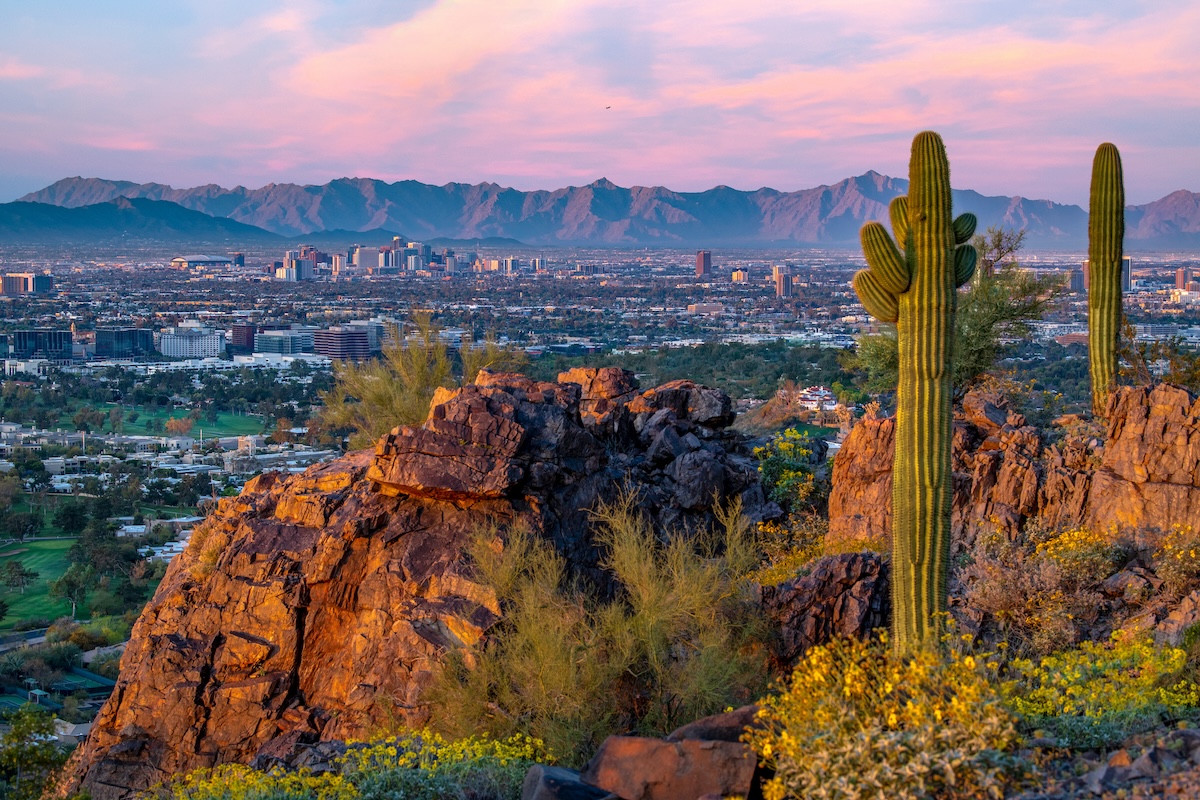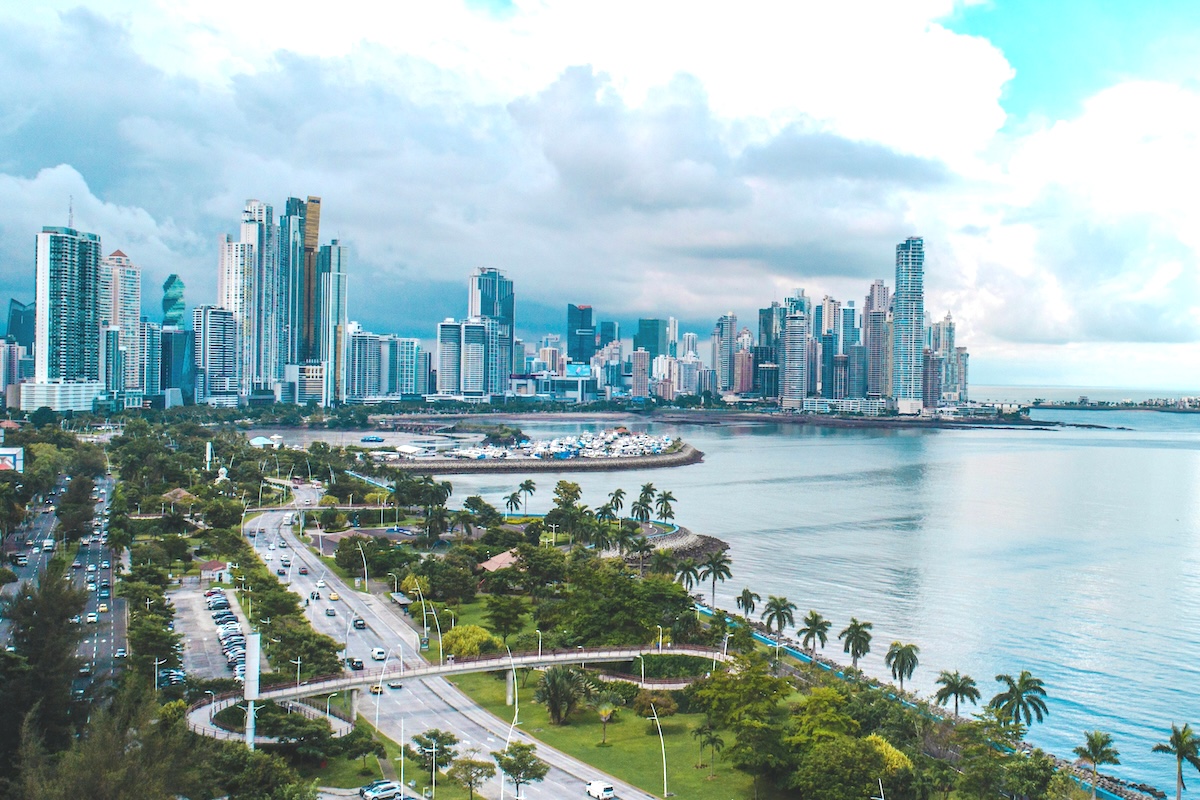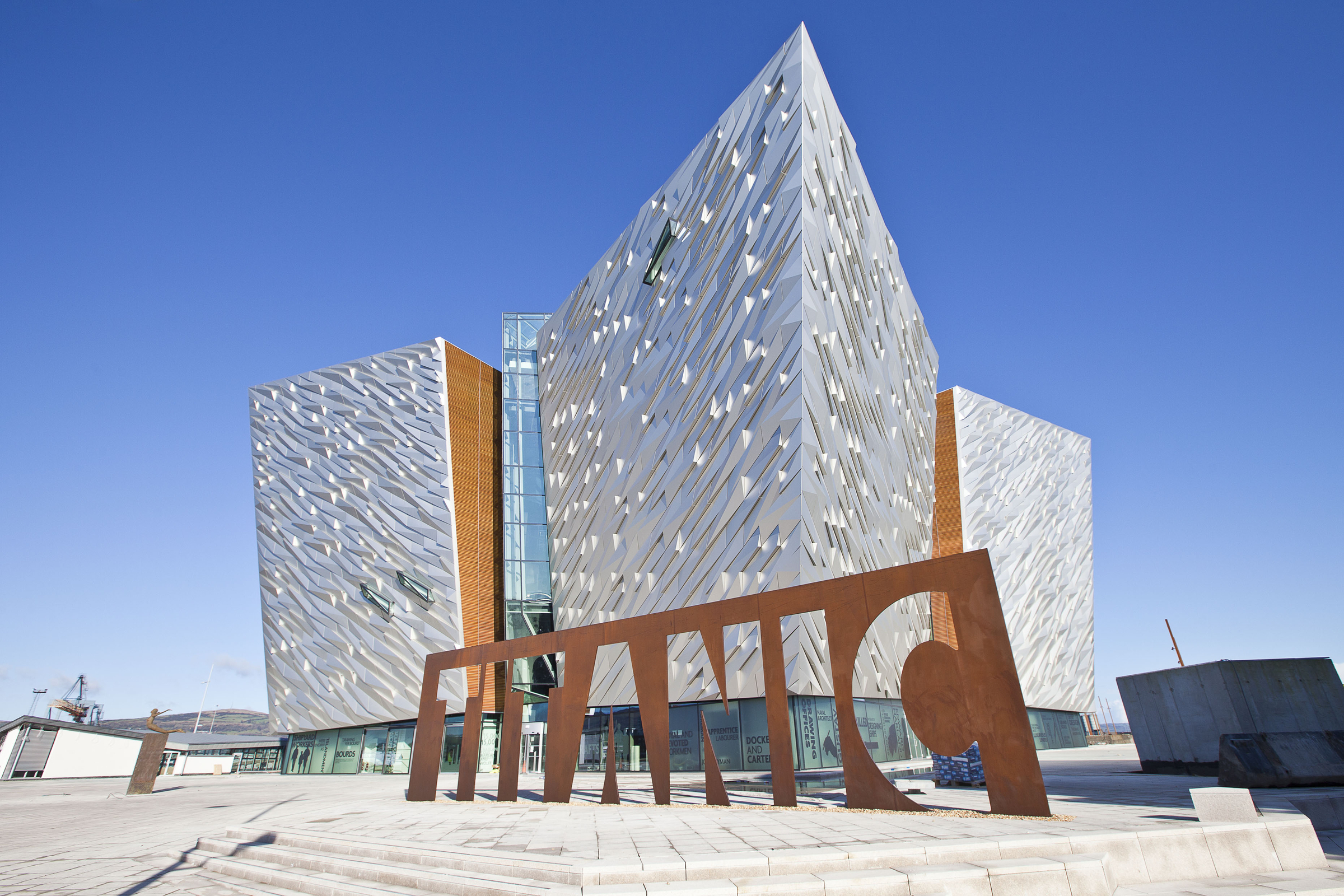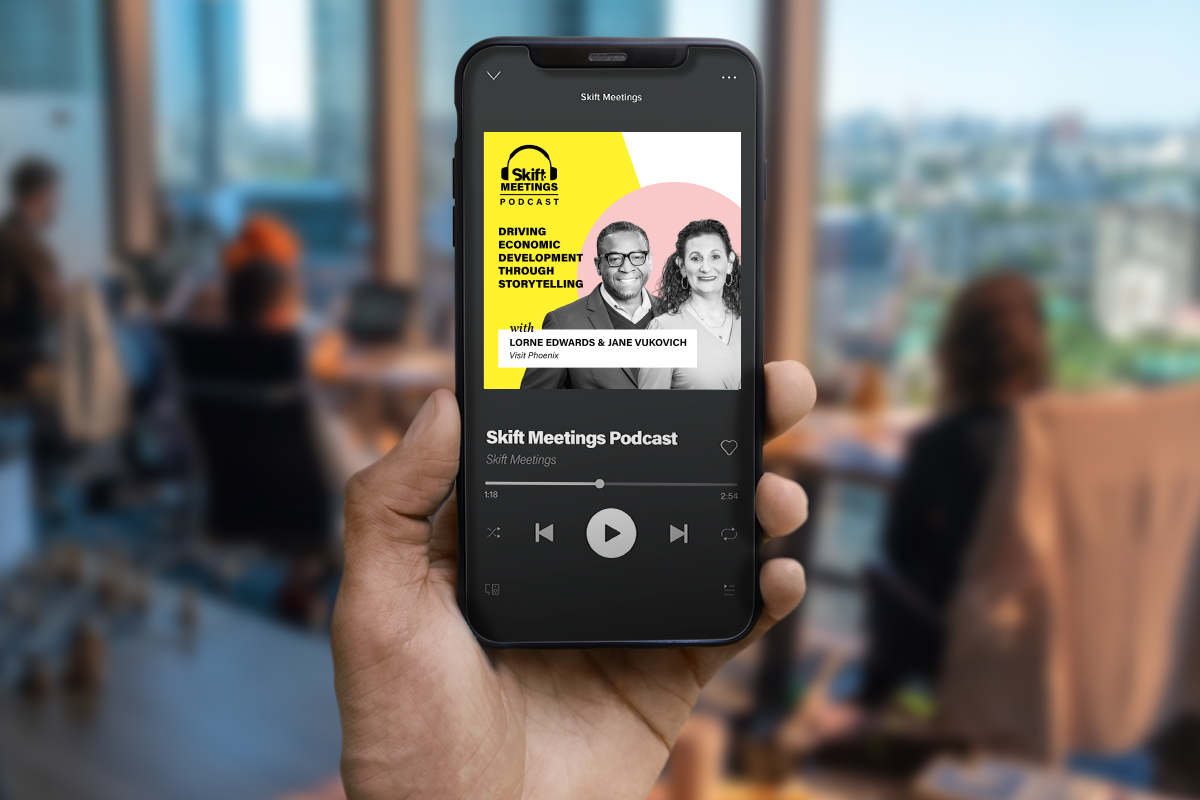This is a sponsored post from Cvent. More information about Event Manager Blog’s sponsored posts.
It’s easy to find yourself overwhelmed with the task of selecting the perfect space for your event. It’s one in a long list of thankless event planning duties fraught with pitfalls. Will your attendees like your choice of destination? Will your boss hate the venue you picked? Will the venue lend itself well to the vision you had in mind, or will inadequate flow be an obstacle?
To say nothing of the risk that attendees will desert your room blocks, leaving you with thousands of dollars in attrition costs.
How do you set yourself up for success at every stage and combine all these aspects to secure a space that becomes an integral part of a great event experience?
In this article, we will review tips and tools for making the best decision at every stage of selecting and designing the event space, from settling on a destination to choosing a venue and designing your event flow.
Stage 1: Destination Selection
Selecting the proper destination sets the tone for your whole event. How do you narrow the field down to the one that will bring the best value to your event strategy and fit your narrative?
THE FUNDAMENTALS
Event type. Is it a large type of meeting like a tradeshow with thousands of guests, or is it a small gathering for a team-building session? Are you going for casual or luxury? Don’t forget that the important thing to focus on is the experience you are going to bring to your attendees.
Event goals. The main goals of your event are going to define your broad option categories: for example, a seaside resort can be adequate for an incentive trip, less for a medical conference.
Figure out what is going to factor mainly in your target audience’s decision to attend: is it the local sights and amazing food, or is the biggest concern accessibility?
Guest preferences. As personalization is becoming a substantial trend for events, define your attendee persona in as much detail as possible:
- Who are they?
- Where do they want to go?
- What kind of experience are they looking for?
- Where would they look for meaningful experiences to complement the intrinsic value of the event?
Event story. Your destination is an integral part of the story you are building for your event. Depending on your main theme, some places might pop up as interesting or even obvious choices. For example, if you are hosting a conference on sustainability, why not consider a Japanese city, as many have made sustainable initiatives a priority?
Budget. Consider all the costs of hosting your event in a particular destination, both for you and your attendees:
- Accessibility costs (to the destination and the venue) for your team, experts, and your guests
- Local speaker fees
- AV rates
- Currency exchange
- Price of local food
- Etc.
Safety and security. Evaluate the geopolitical situation of the destination beforehand to determine if it will meet the safety and comfort requirements of all your guests.
If your event advocates inclusivity, favoring cities with progressive laws and culture could be a good idea.
Hotel/meetings infrastructure. Before selecting your destination, check if there are enough competitive meeting spaces and lodging options in that destination.
Searching with venues already in mind will set you up for success in the next stage.
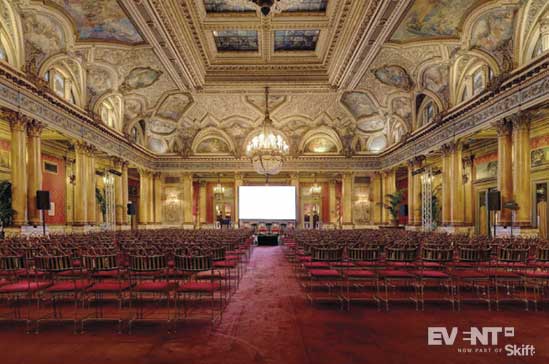

Credit: Cvent
Bonus Tips
Select for local culture. People are becoming increasingly interested in consuming local products. Consider selecting locally sourced food for the menus, and local products for your gift bags. Using local experts and talents might also be a good way to appeal to the community.
Think outside the box. Sure, the city center might offer exciting venues and easy transportation, but it is also usually more expensive and crowded. Why not try surrounding locations that might offer more cost-effective and potentially interesting options?
HOW TO BECOME A SEARCH MASTER
Rely on industry associations (e.g., International Congress and Convention Association) or Convention and Visitors Bureaus (CVB). They can provide you with a wealth of information on local attractions, venues, talents, etc. CVBs, in particular, are closely tied to the community and can give you access to negotiated deals with local suppliers.
If you are looking for an online tool, Cvent Destination Guides provide detailed information on thousands of destinations (average room rates and food costs, area attractions, typical weather conditions, transportation options, etc.).
And if you are looking specifically for a luxury venue, there is an online tool that can help you source and target such venues, providing full venue details, along with the possibility to send your RFP to your favorite ones.
Stage 2: Venue Sourcing
EventMB’s research shows that finding the right venue is the second most important item for corporate event planners, and there are several things to consider during your selection process.
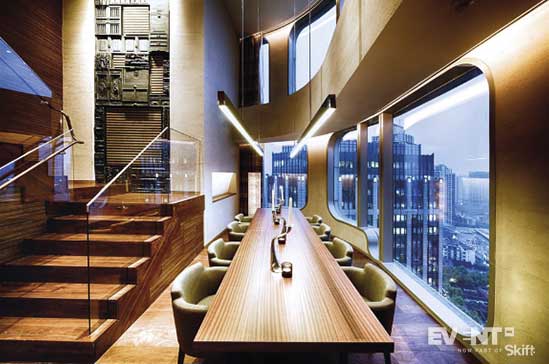

Credit: Cvent
THE FUNDAMENTALS
Again, event goals. Once more, let your event objectives guide you in the choice of the venue. What should be the most important features of the venue: practicality, uniqueness, etc.?
A large conference hosting thousands will likely not take place in the same type of venue as a company’s annual gala.
Convenience. Assess the convenience of access to the venue, the transportation and parking options that are available, etc.
Capacity. Ascertain that the venue can accommodate your group size without being too large (you probably don’t want to host a 100-person business function including a black-tie dinner in a 25,000 square foot warehouse).
Wifi. Good wifi connectivity is now a necessity, especially during business events. EventMB’s latest State of Event Technology report shows that 58% of planners still indicate that wifi availability and performance negatively impact their events.
Be prepared to ask for a dedicated wifi signal for your guests, with high transfer speeds. Investigate the wifi infrastructure to make sure it will provide good coverage everywhere it might be needed.
Finally, don’t forget to ask if there will be any extra charges for that service, and make it a talking point in your negotiation process.
Event story alignment. The venue you choose needs to reflect your brand values and your event mission. Investigate if there are any venue-level initiatives that reinforce your event story.
For example, if one of your brand values is sustainability, it makes sense to pick a venue with a focus on it, like solar panels on the roof, water recycling, etc.
Accommodating creative vision. The venue you pick has to be an integral part of the experience you are creating for your attendees. This is easier if you can scale up or down, modify and customize the physical space and if you have easy branding possibilities.
Check if the venue offers some kind of design support, such as providing digital video walls, AV systems, etc. or if you can use your own vendors (which might or might not be a cheaper option).
Food and beverages. The food and beverages section of your budget can represent a sizable investment.
Maybe the venue offers a catering service you want to use. If so, make sure they can accommodate a range of dietary restrictions from special diets to more serious food allergies. They might also let you choose your own suppliers.
Bonus Tips
Favor sustainability initiatives. Look for venues that promote such programs, and have infrastructure that supports them: for example, collecting rainwater and recycling “greywater”, using renewable energy to power buildings, etc.
This is an area of growing interest among many audiences, and you will stay ahead of the curve if you make it a talking point when evaluating appropriate venues.
Accessibility. Ask about accessibility initiatives carried out by the venue: do they have ramps and elevator access, do they offer braille and audio signage, etc.?
Inclusivity. Make inclusive hiring policies and diversity of event staff a talking point in vetting conversations. This conveys to venues that it’s important to you and your guests, and it might influence their policies.
Try alternative/unique venues. Look at less run-of-the-mill venues, they may provide a more unique experience, and the sense of novelty might attract a diversified audience.
They could also be cheaper, although you might have to book up further in advance.
Plan for event flow. Start thinking about your event flow design at this stage and plan for it in your venue selection: look for configurable spaces (movable walls, lighting, and other features) if your event has a lot of functions. Changing a room from a keynote presentation to a networking event means fewer logistical headaches trying to get people from A to B at the venue.
For more on how to choose your next venue, check this resource by EventMb: The Rise of Smart Venues.
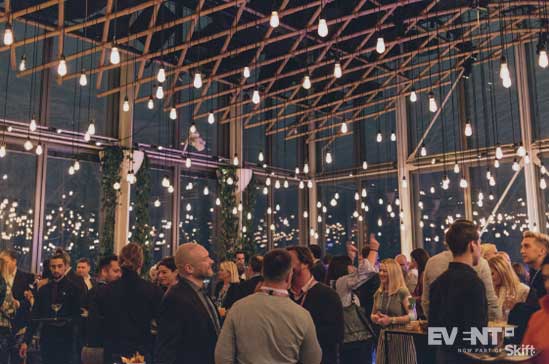

Credit: Cvent
HOW TO BECOME A SEARCH MASTER
A quick online search will probably reveal a fair amount of venues. Tons of search criteria are available, but the results come unfiltered, and reviewing them is time-consuming. You usually end up having to rely on the venue’s marketing materials and website.
That means you probably need help to create that shortlist of venues you will send your RFP to. Here are a few ideas.
Check with the local CVB. Thanks to their knowledge of the area, CVBs can point you in directions you may not have thought of and help you create a shortlist of venues that would be well-suited to your event. They can also help with RFP dissemination, offer translation services, etc.
Use online venue sourcing platforms. These platforms have common features, such as venue search with filters, detailed venue information, the possibility to bookmark your favorites and send requests, etc.
Cvent supplier network is a search engine designed specifically for meeting and event sourcing, it includes a luxury section. For smaller/VIP type event experiences, why not try Kapow, which provides you with a list of event venues in the city of your choice?
Stage 3: Event Flow Design
You have finally found your ideal venue! Now it’s time to design the space to maximize traffic and people’s ability to go from one activity to the other.
THE FUNDAMENTALS
Key requirements. Decide what types of spaces you will need to build your event experience: a dance floor, some quiet lounge seating areas, meeting rooms with specific layouts, etc.
Functional hierarchy for spaces. Figure out what the most important space for your event is, then structure the rest around it. For example, if you host a conference with panel discussions or presentations, the main attractions are the rooms where these take place, not the break rooms.
Attendee journey. It is important that you clearly visualize your attendee’s journey. Your guests need to be able to move and progress from one activity to the next without being hindered in their mobility.
Emergency plans. You should always hope for the best but plan for the worst.
Define all emergency exits and protocols with the venue in advance and review them with the venue as part of the walk-through.
Bonus Tips
Pay attention to high traffic areas. Think of ways to smooth the process for your team and the attendees, and avoid congestion points by planning ahead. For example, if you anticipate that your guests will all arrive at the same time, a large enough entrance/welcome area might be a good idea.
Play with customizable event spaces. Make the most of screens and temporary walls that can be quickly moved to change the layout. Partition a large space into smaller spaces if you need both sizes at different times of the day (e.g. you have small sessions with parts of your guests, followed by a keynote which will need the large space to accommodate all the attendees).
Use a diagramming tool. Get a detailed floor plan (with outlets, pillars, location of AV equipment, etc.) of the venue, and use a diagramming tool like Cvent SocialTables to plan your entire event layout design.
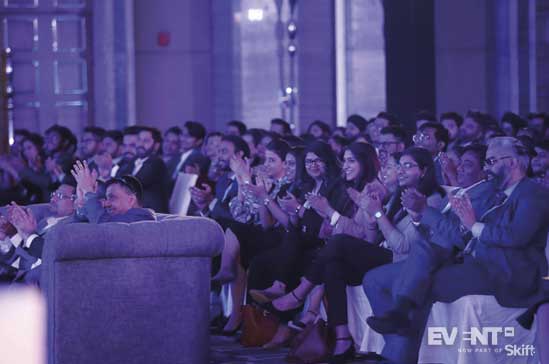

Credit: Cvent
Stage 4: Hotel Accommodation
Another area where you want your attendees to have the best experience is the hotel accommodation they will be staying in. You want your guests to book in the hotels you have reserved room blocks in, but hotel preferential rates are not always actually in your favor, and attendees sometimes find better deals online (for example, a study recently carried out by EventMB shows that the same room at the same hotel during the same days of the event is 1.17% cheaper on booking websites than the “negotiated” or “preferred” rate).Consider the following when looking for hotel accommodation.
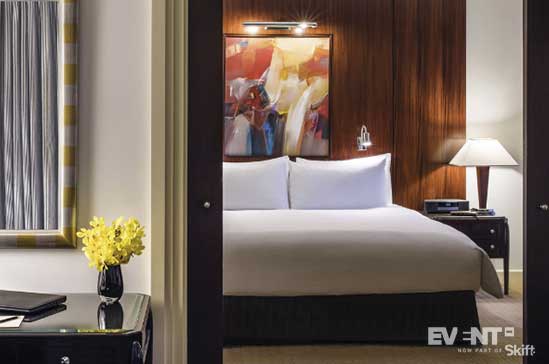

Credit: Cvent
THE FUNDAMENTALS
Expand your search. Researching available rooms in the vicinity of your venue is the best way to ensure you’re getting a competitive rate and are not being set up to fail when attendees don’t book your room block.
Provide options during registration. Present as many options as possible to your attendees, including different types of accommodation, different price levels, possibility of room upgrades, extended stays, etc.
It makes it easier for them to book inside the event room block, reducing the attrition risk.
Incorporate your event branding. Work with the hotel to find ways to incorporate your brand everywhere you can: welcome signage in front of the hotel and at the reception, welcome baskets in each room, etc.
Make accessibility a priority. Favor hotels that are close to the event’s venue (if the hotel is not the venue) and designed with people with disabilities in mind (sufficient number of rooms accessible to wheelchairs, for example).
Bonus Tips
Provide a virtual tour. A virtual tour of the hotel rooms and facilities creates a sense of anticipation, and help people visualize where they are going to stay. Don’t forget, videos speak better than words or even pictures!
Partner with the hotel to push your event narrative. For example, if sustainability is key to your story, ask the hotel to showcase what they do in terms of reduction of water waste or inclusion of local food into their breakfast menus.
Use technology to your best advantage. Invest in a tool specifically designed for room block management: for example, Cvent Passkey can help you streamline and automate hotel bookings.
Integrate that tool into the online registration system, to make the process easier for your attendees (they can choose their dates, options, etc. while registering for the main event, and make changes if needed) and for yourself (no back and forth with the hotel, data tracking feature, and reduces the risk of attrition).
Another advantage of linking the two systems is that the booking website will carry the event branding all the way, making the hotel reservation a consistent part of the whole experience.
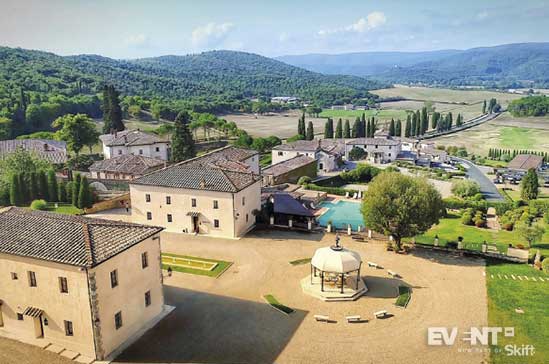

Credit: Cvent
IN CONCLUSION
When choosing the perfect space to host their events, planners are often faced with a plethora of choices.
Selecting the best destination, venue, event flow, and hotel accommodation to fit the event narrative can often look like a daunting task, as the options seem infinite, and all the parts need to complement each other for the event to be a success.
Fortunately, there are tools that can help the event planner with that process.
For instance, Cvent offers software solutions to help event planners with destination sourcing, venue selection, event flow design, and room block management, no matter the type of meeting or event.


